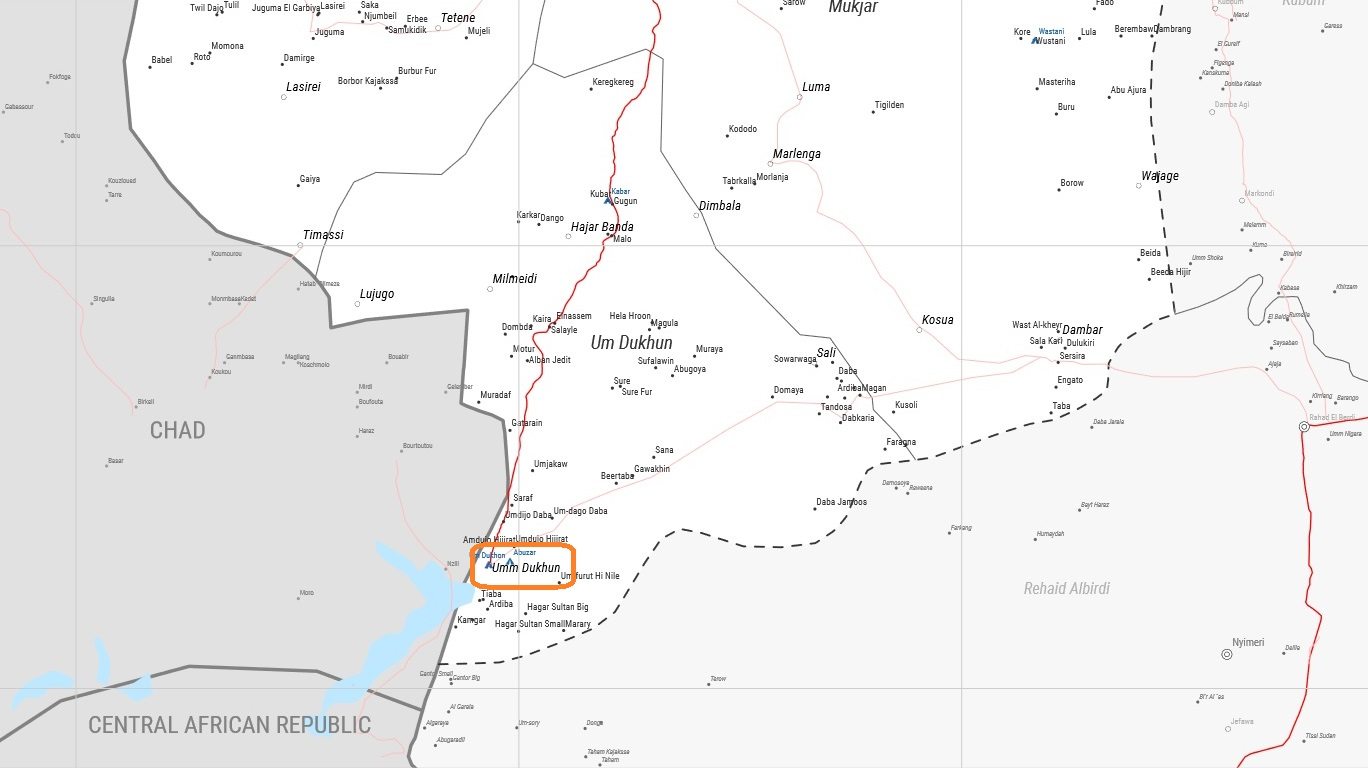Chadian forces stormed the town of Um Dukhun in Central Darfur on Tuesday, with reports of indiscriminate shooting leading to the closure of the market and reports of looting, while conflicting information emerged regarding casualties from the ensuing violence.
Controlled by the paramilitary Rapid Support Forces (RSF) since last year following the outbreak of war in April 2023, Um Dukhun is located at the border triangle with Chad and the Central African Republic (CAR), and is of economic importance for the region.
Local sources recounted scenes of panic as Chadian forces, traveling in a fleet of four-wheel-drive vehicles, stormed the town. The forces immediately started shooting at the market upon arrival.
Fires also ravaged a neighbourhood in the western part of Um Dukhun, though its origins remain disputed, some attributing it to the gunfire.
Reports of casualties are yet unconfirmed, with some sources stating that there were cases of deaths amongst Sudanese gunmen. It is not yet known if the reportedly slain gunmen belong to the RSF. Communication disruptions persist throughout the town and wider Darfur region.
Speculation regarding the motives behind the Chadian forces’ incursion has also been in question. Some sources claimed the operation aimed to track a stolen vehicle, others suggested it was in response to the detention of a Chadian officer.
According to reports however, the Chadian officer in question was swiftly released by the RSF, attributing his detention to a failure to adhere to official procedures.
As tranquillity gradually returned to Um Dukhun on Tuesday evening, Chadian forces reportedly extended an invitation to the RSF and the tribal civil administration leaders managing Um Dukun and surroundings in the absence of a governmental administration, for an urgent meeting that was due to take place yesterday afternoon to address the incident’s root causes. Details of the meeting remain undisclosed at the time of reporting.
Um Dukhun hosts 3,028 families that fled the SAF-RSF fighting in West, Central, and South Darfur, who were displaced as a result of the ongoing war. There are also four refugee camps in the area, with most of the residents coming from Chad.

